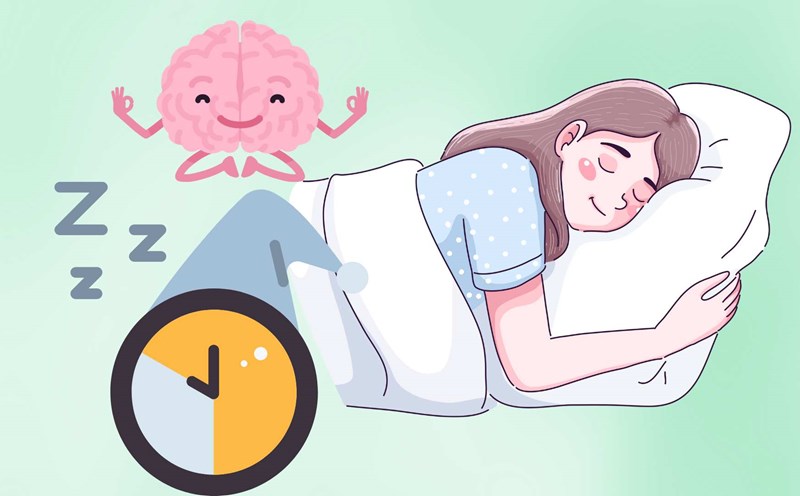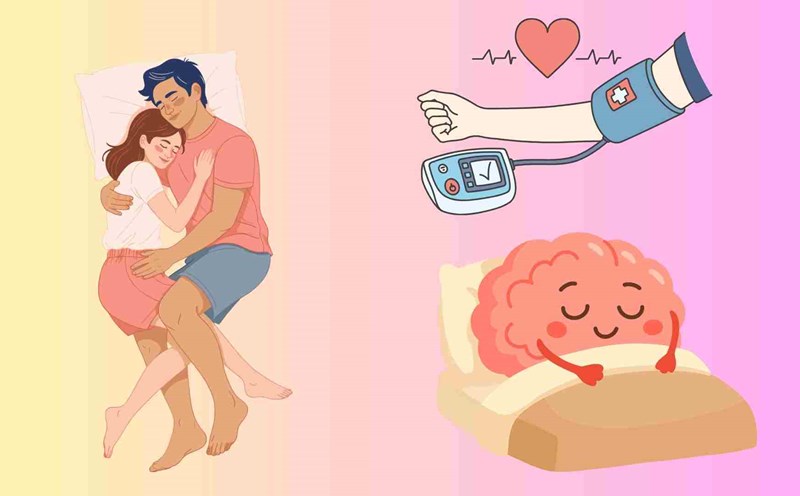Not only are eggs a source of high-quality protein, they also contain many nutrients that have a positive impact on the body's sleep regulation mechanism.
First of all, eggs contain tryptophan, an essential amino acid that the body uses to synthesize serotonin. This is a neurotransmitter that helps improve mood and create a feeling of relaxation. Serotonin is then converted into a hormone that controls the body's natural sleep-wake cycle. When this hormone level increases in the evening, the brain receives signals to prepare for deeper sleep. Therefore, supplementing eggs, especially for dinner or dinner, can help the body fall asleep more easily.
Eggs are rich in vitamins D, B6 and B12. These vitamins are directly involved in energy metabolism and nerve activity. Vitamin D deficiency has been shown to be associated with sleep disorders.
Eggs also contain choline. This nutrient helps maintain the health of the central nervous system, thereby reducing fatigue or stress - factors that often hinder sleep.
Another notable factor is the low glycemic index of eggs. Unlike easily absorbed sugary or starchy dishes, eggs help maintain stable blood sugar levels at night, avoiding the situation of hypoglycemia that causes the body to wake up mid-way. The protein in eggs also helps prolong the feeling of fullness, reducing night hunger - a cause that makes it difficult for many people to sleep.
Dinner with eggs if you want to sleep well
For this to be effective, you should eat eggs in the evening appropriately. In particular, boiled eggs or steamed eggs are best; avoid frying too much fat because they can easily cause bloating and indigestion. An egg combined with green vegetables or a handful of whole grains is the optimal choice.
Eggs are not only a popular nutritional food but also a food that helps improve sleep quality through the provision of tryptophan, vitamins and essential nutrients. When scientifically combined with meals, eggs can help the body naturally relax and maintain a deeper, better sleep each night.











